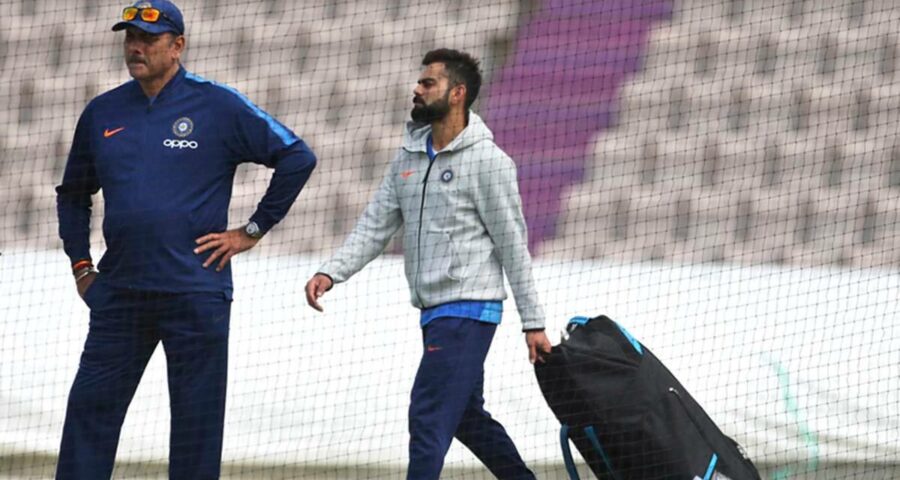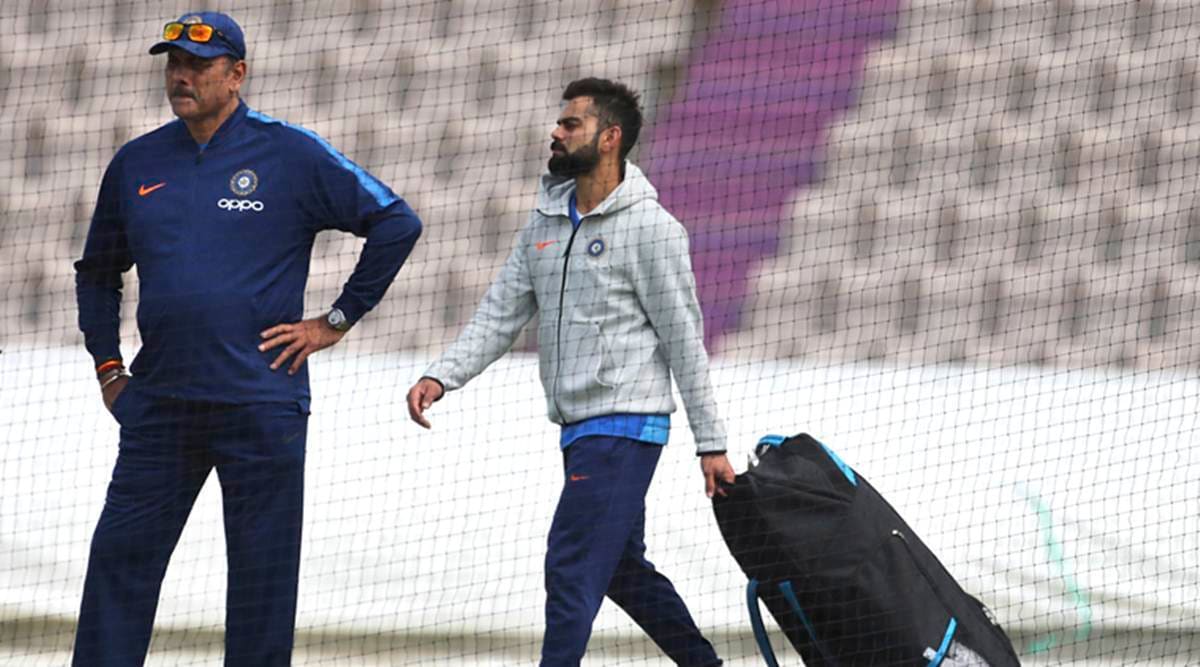With the pandemic hitting cricket at all levels, the birthplace of the sport needs the game’s biggest drawcard like never before
A few days ago, a banner popped up at the premises of Leicestershire County Cricket Club. ‘Virat Kohli’s India, coming to the county ground’, it screamed. The tentative dates given were July-end. And on the right-hand side, there was an orange patch with a call to action about tickets. ‘On Sale Soon. Register your interest now’, it read, a full six months before the game.
Ticket sales will start on March 15. And it’s not even a game against England, but a tour game – India vs India A. It says much about the commercial interest that Indian cricket whips up in recent times.
England’s tour of India has come at an interesting time in the bigger picture back home in England. Cricket was poised to take off at the grassroots in the football country after the World Cup triumph in 2019, but the pandemic put paid to it. The domestic T20 competition hasn’t still taken off, the counties are feeling the monetary pinch, the feverishly-wished cricket revival post-World Cup is still awaited. Broadcasters haven’t even been able to cough up the money that BCCI thought it could earn for broadcast rights. Negotiations are still on, with the first Test starting on Friday. Another strict Covid lockdown is on. Uncertainty abounds, in life and cricket.
Conflicting interests?
The difficult task of beating India in India in a Test series has been made tougher by England’s rotation system, forced by a tough schedule in the pandemic year. Jos Buttler, their attacking wicketkeeping-batsman who has just found his feet in Test cricket, will just play the first Test. Jonny Bairstow, whose game against spin has improved a lot in recent years, will miss at least the first game.
Ali Martin, the cricket writer at The Guardian and The Observer, says it also shows the influence of England’s white-ball captain Eoin Morgan in determining the Test squad, in the year of the T20 World Cup.
“Eoin Morgan has requested that he have the full strength T20 squad for this one time this year – in the five-match series that follows the Tests. Whether this would have happened if England had just one captain across formats, I don’t know. But the fact is that they have an extremely powerful World Cup-winning captain in Morgan, who has requested a full-strength squad. He is such a powerful figure in English cricket after the World Cup win that he is going to get his way. Root will probably have to suck it up for now. Perhaps after the World Cup, he will get a first pick of the squad,” Martin said in a discussion on the Express Sports podcast.
It’s Buttler’s absence that rankles Martin. “Bairstow is a good player of spin but he doesn’t have a Test contract. If everyone in the team is fully fit, does he get in? It’s a flip of a coin. But Buttler is the first-choice Test ’keeper. An IPL veteran, what does he really get out of that five-match T20 series? I personally am surprised that he is not the one player that Root didn’t just say, ‘Sorry Eoin, I really need Buttler here. You have to concede on this one.’ But this is the internal politics of a team that is grappling with a freakish winter, to be honest.”
A fringe sport in its birthplace
Lawrence Booth, Wisden Almanack editor and a cricket writer with Daily Mail unpicked the larger significance of England’s tour of India. About what it means to people back home. “For the general English public, this series doesn’t matter as much as the Ashes. Cricket doesn’t capture the imagination as football does. We are a footballing country. Ashes still reign. But to the cricketing community, a series win in India would probably be slightly higher than an Ashes win. People still talk about England’s win in India in 2012-13, the last time India lost a home Test series. Even for the players involved in that win, the series win is probably greater than what they achieved just two seasons prior to that in beating Australia under Andrew Strauss. Winning in India has now become the hardest gig for any touring team. They just have lost one Test in the time since England won a series in India in 2012. Winning in India would be Joe Root’s greatest achievement yet,” Booth says. (Listen to the podcast for the prediction for the series from the two writers!)
Side-effects of the virus
Dr Thomas Fletcher is a senior lecturer at Leeds Beckett University and has also edited Cricket, Migration and Diasporic Communities, and been a consultant with the England Cricket Board and Yorkshire Cricket. He detailed out the uncertainty and also the hope about what England’s India tour can achieve.
“The bad news is Covid hit the grassroots after the World Cup.” His own kids had to be pulled back from a cricket programme run by the club during school holidays last year. “From there, they were about to go to All-Stars, a programme run by the England Cricket Board for kids in the age-group 5 to 9 to introduce the game early in life. All that was scrapped. Clubs rely on people coming through the gates. That’s gone now. There was a collective high in the cricketing fraternity after the World Cup win but it has been difficult to maintain interest due to the pandemic.”
Split loyalties ok
It’s where the two tours – England in India and the return visit later this year – will be vital in reviving interest. Much depends on the Brit Asians. In the past, Fletcher’s work has revolved around diversity and participation of British Asians in the sport. “According to ECB research, 30 per cent of kids who play cricket in the country are British Asians. But hardly any progress through the professional system,” he says.
There is some good news, though. The administration and the culture of cricket in the country have stepped up and cricket is becoming more inclusive. “It’s not like the old days when a Brit Asian’s loyalties would be challenged in offices and stuff. I think there is a lot more acceptance that a Brit Asian of Indian origin would support India in cricket. It’s a friendly rivalry now with Asian friends and doesn’t have the conflictual nature it had before. Which is a great thing. There is an acceptance that heritage matters.”
There’s still hope
Other issues remain. “Football is the go-to sport in government schools. It has a monopoly over kids, particularly white English kids. The perception is cricket is slow and boring. majority of government schools don’t have competitive cricket teams. And that’s why not just T20 cricket – the Hundred competition – but also the great triumph in the World Cup was so vital for our cricket establishment to build on, but the pandemic has affected that. The hope is that the interest hasn’t died, but has kept simmering. The viewing figures for the home series against West Indies and Australia were exceptional. There is a thirst for cricket. Hopefully, the Indian tour will kick it up. We need more cricket on terrestrial TV. If you can’t see something, how will you engage with it?” Fletcher asks.
Cricket will get a lot more print space this series. Booth expects there will be three sports pages devoted to cricket at the Mail. A similar spread would be at Guardian, says Martin. Now, all that is needed is a good tightly-fought series that can spike up the interest in the country that invented the game.
Source: Read Full Article


